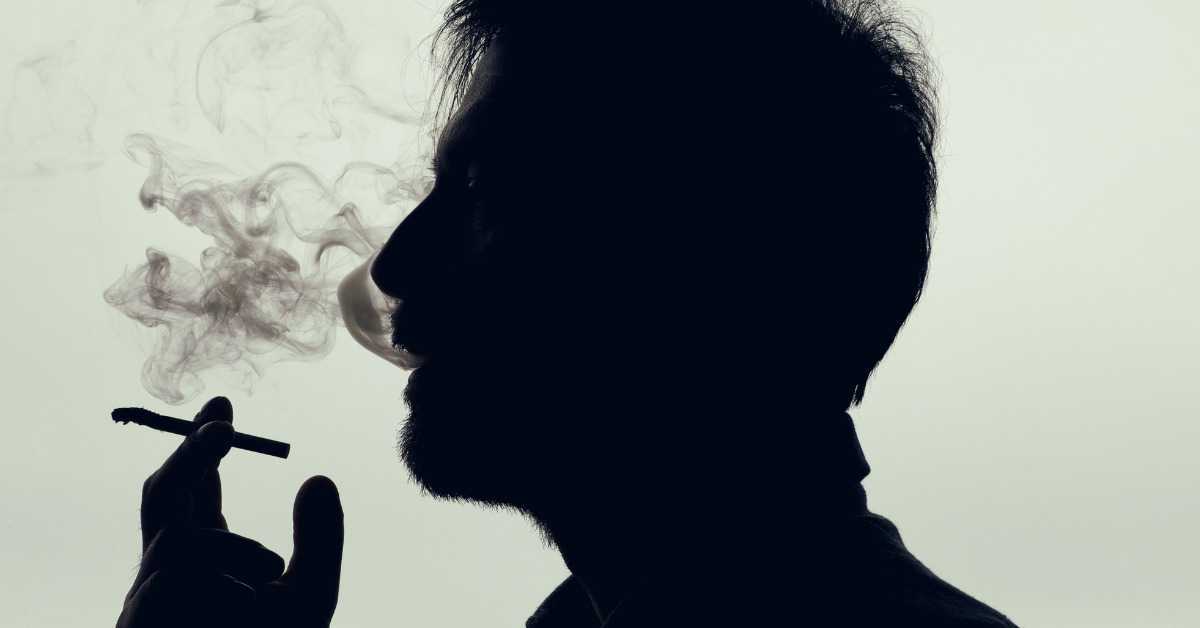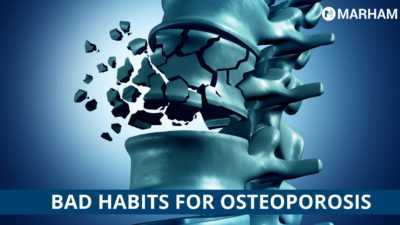Are you looking at Bad Habits for Osteoporosis? If that’s the case, here’s what you need to know: There are some risk factors for osteoporosis that you can’t change, such as your family history, age, and ethnicity. However, there are a number of lifestyle choices that you can make to reduce your risk of bone loss and better protect your health. Begin by eliminating the following bad habits from your daily routine:
1. Not Supplementing As You Age
Almost everyone in the United States is deficient in essential minerals! Furthermore, after reaching peak bone mass (around the age of 40), you begin to lose 1% of your bone density per year. If you don’t make up for the shortfall, your once-healthy bones will start to deteriorate. You can get the vitamins and minerals you need for healthy bones by supplementing with a clinically supported bone-building supplement.
Stay away from these bad habits and form good ones if you want strong and healthy bones. Good habits include eating a nutrient-dense diet rich in calcium and magnesium. Regular weight-bearing exercise that stresses your bones in a good way, as well as supplementing with an organics. Take help from experts for this.

2. Exercising in the Right Way
Many studies have shown that doing weight-bearing exercises like lifting weights, resistance training, and running on a regular basis improves bone strength and density. One study found that working out with weight resistance exercises for four hours a week reduced the risk of hip fracture by over 40%. Weight-bearing exercises such as Pilates, hiking, yoga, and even gardening can be incorporated into your workouts.
3. Sleep Deprivation
Sleep deprivation may have a negative impact on not only your development but also your aging process. Can a lack of sleep, on the other hand, harm your bone health? Researchers discovered that a lack of sleep in rats halted bone formation. Their bone density also continued to deteriorate. Doctor Carol Everson, the lead researcher, believes that sleep deprivation can affect how our bones repair themselves in humans. Try using natural sleep aids like lavender essential oil, which has been shown to help with sleep.
4. Poor Posture
Simple posture errors can have an impact on bone health, which may surprise you. Many people nowadays suffer from a problem known as forwarding Head Posture. Leaning forward over phones, laptops, or your desk at work causes this. This posture creates lot of strain on your muscles and can even cause or worsen osteoporosis. This is a fixable issue that you can address by performing a simple exercise known as the Chin Tuck:
- Sit up straight
- Tuck your chin in by aligning your head over your shoulders with your neck muscles
- Hold for 5 seconds
- Repeat 8 times

5. Poor Diet
The Standard American Diet includes processed foods, refined sugars, and a high sodium intake. When it comes to your bone health, this is unfortunately a disaster waiting to happen. Dark leafy greens, whole grains, fruits, nuts, and calcium-rich foods are all good for your bones.
6. Lack of Sun Exposure
Vitamin D is best obtained from sunlight, but up to 85% of Americans are vitamin D deficient. You don’t have to be concerned about having to spend hours in the sun. In just 20 minutes, the human body can produce 10,000 to 20,000 IU of vitamin D. When is the best time to do so? New research suggests that noon, rather than morning or afternoon, is the best time to get vitamin D from the sun.
7. Smoking
Smoking is harmful to your bones as well as your overall health. According to the majority of studies, smoking increases the risk of fracture. Women who smoke have lower estrogen levels and experience menopause sooner. When compared to non-smokers, this leads to more bone loss. However, there is some good news. Smokers who give up the habit appear to have a lower risk of fracture and low bone mass, though it may take a few years.


Ending Notes
It is never too late to search treatment if you have osteoporosis, as age is one of the main risk factors for osteoporosis and fractures. Treatment can stop bone loss and reduce the risk of fractures significantly. Other medical conditions that can cause osteoporosis, such as vitamin D deficiency, must be ruled out by your doctor. Contact him immediately.
Book an appointment now, to answer all your queries. You can book an appointment with the top nutritionists in Pakistan through Marham by calling at Marham helpline: 0311-1222398 or by online booking facility through the website or Marham mobile app.
Can’t Find The App?
Android Users:
https://play.google.com/store/apps/details?id=controllers.marham.marhammed&hl=en
Drop a review for us at play store if you’ve had a good experience!
iPhone Users:
https://apps.apple.com/pk/app/marham-find-a-doctor/id1095243102
Stay Home. Stay Safe!
FAQ’S
What factors influence bone health?
Healthy lifestyle habits such as eating a balanced diet rich in calcium and vitamin D, exercising regularly, maintaining a healthy weight, quitting smoking, and limiting alcohol consumption are not only effective in managing osteoporosis, but they can also improve your overall health and well-being.
Is it possible to reverse osteoporosis through exercise?
Regular exercise can help your bones stay strong as you get older. Exercise also has other advantages, such as strengthening your muscles, which helps you stay coordinated and balanced. These advantages may also assist you in avoiding falls or bumps into objects that could result in broken bones if you have osteoporosis.
Is walking beneficial to osteoporosis?
Regular exercise, such as walking, can help to prevent bone loss. Regular brisk walking can help keep your bones strong and reduce the risk of a future fracture if you have osteoporosis or fragile bones.

